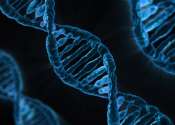Gene therapy targets inner retina to combat blindness
Gene therapy to the inner retina prevented blindness in a mouse model of the neuro-degenerative disorder CLN3 Batten disease. Adeno-associated viral (AAV)-mediated expression of the human CLN3 gene led to significant survival ...
Aug 11, 2020
0
1









